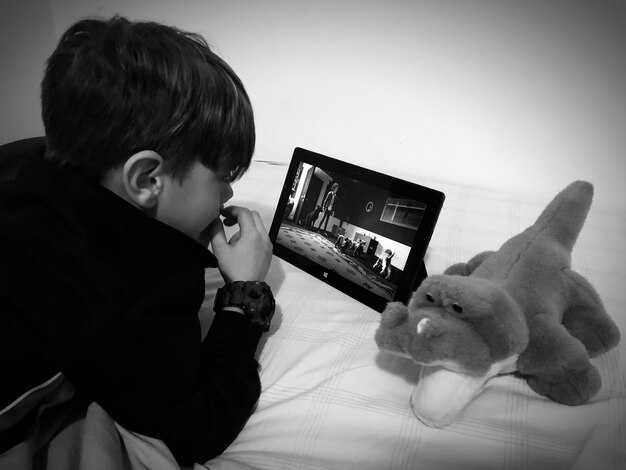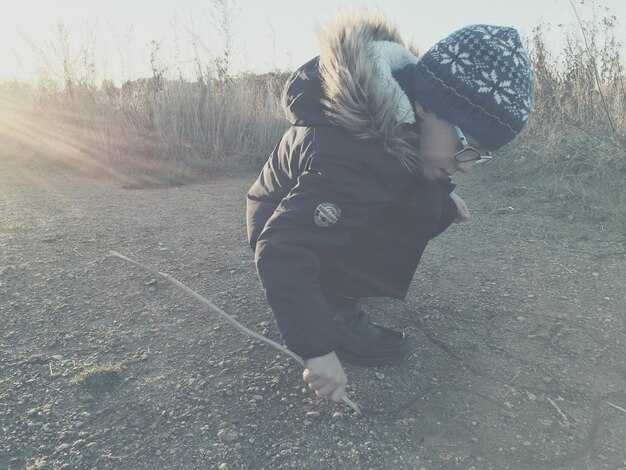Not every obsessive bond takes the form of a romantic affair — sometimes it’s a friendship that fills the void left by childhood neglect and inflates in your imagination. You fixate on this person, craving their approval, wanting them to love and support you unconditionally and forever. That craving usually points to an unmet childhood need that spilled over into a vulnerable friend. Eventually reality forces a reckoning: you either recognize how your attachment wounds have been steering your choices and adjust course, or you sink further into despair and fixation. Today’s letter comes from a woman I’ll call Addie. She writes:
Dear Anna — How do you step back from limerence when it has grown into a real bond? My limerence for a parental figure turned into a kind of parent–child arrangement that is both my greatest solace and my deepest pain.
Okay — I’ve got my little notepad out. I’ll mark things I want to return to, but first I’ll read the whole story because it’s fascinating. At first I was puzzled: limerence usually describes romantic longing. Addie explains: this isn’t some casual crush — this person is my designated emergency contact. People joke that we’re like a married couple, which feels safe because he’s forty years older than me and gay. A few years back I moved into an apartment building whose caretaker wasn’t ordinary; we’ll call him Sam. The personal care he brought to his job was at times tender and at others intrusive. Above all, he was attentive: keeping tenants updated, bringing packages to doors, offering airport rides, and passing along articles or notes that seemed suited to people’s interests. When folks renewed leases, he’d give a small gift — not on behalf of the rental agency, but as a personal gesture. Every night at exactly nine, Sam would walk the hallways to ensure everything looked right. He’d check the outer doors and, playfully, press his thumb along the door frames as if sealing out bad spirits. That routine showed two of his strongest traits: steadiness and whimsy. As I learned his habits, Sam took on a kind of magic for me — the sound of his nine o’clock footsteps was like a lullaby.
My parents were too busy fighting to give us structure. I never had a bedtime and no one checked my school reports. My mother struggled with alcoholism; my father was kind but distant — I remember how upset I was as a teenager that he couldn’t even spell my name. I was also raised in a religion that emphasized the danger of human nature and painted the world as dark and threatening. I have always longed for a sense of home and feel guilty that, as an adult, I can’t seem to create that for myself. I like who I am when I’m being creative, but by the end of the day my inner landscape still feels like a hostile, frozen planet.
Sam brought me warmth and a feeling of home. Because of the age gap, the parent–child dynamic in our friendship was obvious: I’m in my early thirties and he called me “kid,” gave me little chores around the building in return for meals, and would stop by my workplace to hand me a playful note. Modeling after him helped me care more for my body and introduce structure into my days. I used to wear one of his old shirts like a talisman as I explored a cleaner, more ordered life. He took an interest in me and encouraged my pursuits, yet he also issued parental-style reprimands. He admits he’s charming and generous as well as critical and controlling. Because I idolized him, his criticisms hit me hard; a kind word from him could brighten my whole week, while a harsh remark could crush me. Once, during a heated argument, he told me I needed to stop feeling and start thinking. That cut me deeply. Later he retold the fight to others as a joke; because he laughed, I found myself laughing along. Many things that upset me became the subjects of funny stories. Worse, those conflicts sometimes turned into a strange form of intimacy — as though fighting together proved we were close. At other times he made clear he didn’t want the parental role: when I asked if he liked having quasi-children around, he said he did so long as it was entertaining and that being the building’s caretaker let him cycle through fresh people. Hearing that — after years of pouring myself into the connection — made me feel crazy. In fact, feeling crazy became a staple of my time with him. The most frightening example of how far I’d gone was converting to his religion. In retrospect, I see it wasn’t right for me, but at the time I was so desperate for closeness that my heart genuinely seemed committed.
I’ve tried to free myself from his influence many times. Last year I made a big move: three hours away and back to school. But even with distance and a schedule busier than ever, I’m not free. We FaceTime weekly, and sometimes I drive to see him or he visits me. Letting go feels nearly impossible, especially while I’m the older student in a new city and feeling lonely. Talking to him is a mixed bag: sometimes it crushes my spirit, other times it anchors me in life like nothing else ever has. Recently he told me, “I’m proud of you.” It terrified me how much that mattered. Is a healthier, more balanced relationship with him possible, or must I cut him off entirely? I wouldn’t know how to begin that process, or how to bear the pain it would bring. Whatever happens, I know I must build an inner sense of home. Your guidance would mean a lot. Thank you — sincerely, Addie.
Addie, this is a beautiful, unusual story. I appreciate the small, vivid world you built with your words. There’s something I’m noticing that you might not see, and I’ll get to it — but first: you call this limerence, and that term usually means an obsessive longing for someone you can’t have. I wasn’t totally sure that was what you meant; it sounds more like a friendship in which both of you were highly idealized. Idealizing people tends to set us up for disappointment. You also parentified him — acting like a child in relation to him — and that’s different from a typical adult friendship. When someone in their early thirties relates to a caring older man who behaves kindly, it can feel intimate without being enmeshed in the way parent–child relationships often are. To me, it sounds like a very close friendship rather than overtly romantic feelings, and that he enjoyed the bond. Still, occasionally you received a reality check: he wasn’t treating you as a daughter, just as a valued friend. If what I’m hearing is right, it’s understandable those disagreements would hurt.
You said Sam took on a magical quality for you — that’s a red flag I often see in letters from people who experienced childhood trauma. I understand what you mean: someone can feel exceptionally special to us. But when we project an almost mythical perfection onto someone, we set expectations they can’t truly satisfy. Your anger when he fails to be that flawless, all-loving figure reveals how much of his image came from your own needs. He’s a man — a generous, thoughtful, quirky man — but he’s still human, with limits and flaws.
Your upbringing — no bedtime, no one checking school, an alcoholic mother and an emotionally distant father who didn’t even know how to spell your name — matters deeply. From my vantage point reading many similar letters, parental alcoholism is a recurring theme in stories of intense, dependent attachments. When a parent is inconsistent or emotionally absent, children learn to seek nourishment from others later in life, sometimes in ways that aren’t reciprocated or sustainable. Your description of spiritual and emotional homelessness — that inner ice planet — is vivid and sorrowful. It makes perfect sense you’d be drawn to someone who offered warmth and predictability.
Because of the age gap, the caregiver-like elements of your relationship were apparent: he called you “kid,” assigned chores for meals, and allowed you to be childlike in his presence, which might have felt healing. But there’s a darker edge to time-traveling emotionally into a child role as an adult; at first it’s sweet and comforting, then it can become untenable. You wrote that wearing his old shirt felt like wearing a magic garment — that image suggests regression, a tender but childlike coping move. The effect of his attention and modeling — helping you add structure to your life — was a genuine gift, particularly given your chaotic upbringing.
However, some things crossed into unsettling territory. He could be critical and exert control; you absorbed his judgments because you held him in such high regard. I’ll suggest a practical shift: don’t take people’s criticisms straight into your core. Instead, practice something I call the front-porch technique. Picture your inner life as a house with a front porch. You can invite opinions and advice to the porch: listen, accept the words, then carry a pamphlet back inside and consider them in the privacy of your home. In other words, don’t let others’ views have direct, unfiltered access to your identity. Let them speak, but decide for yourself whether to let their words into your inner world.
When someone helps you become a better version of yourself, cherish that. People who draw forth our best qualities are rare and precious — they might be teachers, friends, mentors, or partners. At the same time, no one is perfect. Holding people at a more realistic distance keeps you safer. Your experience of dramatic mood shifts — where kind praise lights up your week and a harsh remark devastates you — points to porous boundaries and a selfhood that’s vulnerable to others’ judgments. That produces instability. You can work on that, however, and it could make this friendship healthier.
You described a fight where he told you to stop feeling and start thinking. That remark felt dismissive and painful, but it likely reflected his desire for more regulation and clarity in heated moments. For someone with trauma-related emotional dysregulation, intense arguments are often fuelled by a brain state where emotional centers overpower rational ones. In those moments, it feels impossible to respond calmly. It’s plausible he was encouraging emotional regulation — albeit in a blunt way — not denying the value of feelings entirely. Learning practices that lower arousal can help you step back from that intense zone and respond differently next time.
You also noted that he would later recount your arguments as comedic anecdotes and that you found yourself laughing along. That’s a common coping move: if the sting of conflict becomes a joke, it’s easier to live with. But humor can also mask wounds. When disagreements were reframed as funny stories, that made your distress feel minimized; yet you also mentioned that those same conflicts became a perverse way of bonding, proof of closeness. Conflict does often indicate intimacy — only strangers never argue — but it matters how those conflicts are handled. If they’re repeatedly shrugged off or turned into entertainment that leaves you feeling dismissed, that’s harmful.
When he said he enjoyed having a rotating cast of “quasi-children,” it wounded you because you’d invested so much in being his special person. That and other moments made you feel crazy. I’d offer a gentle reframing: it wasn’t what he said alone that made you feel unsteady — it was the mismatch between how you’d idealized the relationship and the reality of his boundaries. Your expectation that he be your parent substitute was out of alignment with what he could and would offer. That disconnect is painful, but it also points to where boundaries and expectations could be adjusted.
You once converted to his religion, which in hindsight wasn’t right for you. That decision shows how far you were willing to go for closeness. It’s poignant and understandable that you were so eager for connection that you embraced beliefs and practices that didn’t fit you. The relationship stirred deep capacities for attachment that may ultimately be more appropriate for a partner than for a friend or mentor.
You’ve tried to disentangle several times, and you made a courageous move: three hours away and back to school. Still, the relationship persists via weekly FaceTime and occasional visits. Distance alone often isn’t enough when emotional patterns remain intact. Loneliness as an older student in a new city makes re-connecting with Sam feel like a balm even when it also brings pain. You asked if you should cut him off: I hope not, because he sounds genuinely special, generous, and stabilizing in ways that have helped you. But I also hear you saying that it sometimes crushes you and keeps you emotionally entangled. That tension suggests the relationship needs renegotiation rather than an absolute severing. You may be able to preserve what’s valuable while changing the patterns that hurt you.
You recognized the truth in your own letter: you need to develop an inner sense of home. That is the crucial work. It won’t happen overnight, but it’s the most important project you can undertake. It grows through many small acts: caring for your body, tending to what matters to you, following your creative impulses, cultivating friendships that are mutually nourishing, and doing the ordinary practices that bring warmth and steadiness to your inner life. Building that inner home is harder after trauma, but it’s deeply possible and life-changing.
For anyone reading who fears slipping into old patterns, here’s a practical, grounding step: learn to spot common self-sabotaging behaviors driven by trauma. In my work I compile a list of self-defeating patterns — things people do in relationships and in solitude that reinforce their wounds. These habits tend to flourish when we’re overwhelmed, isolated, or emotionally dysregulated. Recognizing which of them show up in your life allows you to name them and chip away at them. Over time, as the nervous system calms and trauma wounds heal, those behaviors lessen.
Take heart: there’s a way forward. You’ve found something precious in Sam — a person who helped you organize your life and feel seen — and you’re also seeing how the attachment dynamic challenges you. That awareness is the first step toward reworking boundaries so the relationship becomes sustainable rather than consuming. If you want practical tools, you can download a list of self-defeating behaviors to check against — it’s a helpful starting point. Wishing you steady progress and the gradual warmth of a home you build from within.


 How to Detach When Your Feelings Go TOO FAR">
How to Detach When Your Feelings Go TOO FAR">

 This is why Relationships Fail.">
This is why Relationships Fail.">
 The EASIEST way to FIX your FIGHTS in your Relationship">
The EASIEST way to FIX your FIGHTS in your Relationship">
 Childhood Neglect Makes You "Play Small" in Relationships (4-video compilation)">
Childhood Neglect Makes You "Play Small" in Relationships (4-video compilation)">
 Never Take an Avoidant Back If They Do These 5 Things | Jordan Peterson">
Never Take an Avoidant Back If They Do These 5 Things | Jordan Peterson">
 5 things MAKE or BREAK your Relationship">
5 things MAKE or BREAK your Relationship">
 Here’s WHEN we can BLAME the Narcissist.">
Here’s WHEN we can BLAME the Narcissist.">
 Simple 4 Step Apology to Repair Conflicts and Disconnection">
Simple 4 Step Apology to Repair Conflicts and Disconnection">
 Unhealed Trauma & Poor Boundaries Make Finding The ONE Feel Impossible">
Unhealed Trauma & Poor Boundaries Make Finding The ONE Feel Impossible">
 The longer you stay silent with your avoidant Ex, this will happen | Jordan Peterson">
The longer you stay silent with your avoidant Ex, this will happen | Jordan Peterson">
 The Hidden Rules of Female Friendships That Can Break You">
The Hidden Rules of Female Friendships That Can Break You">